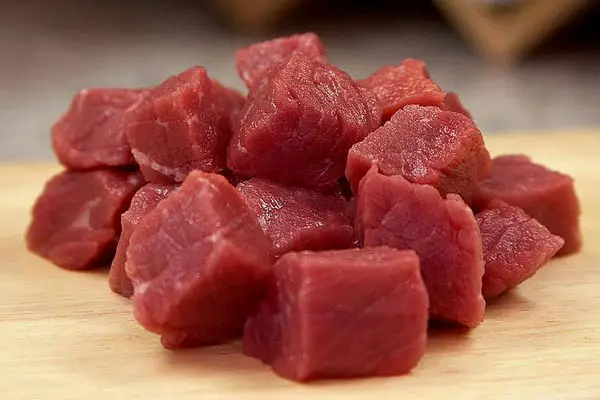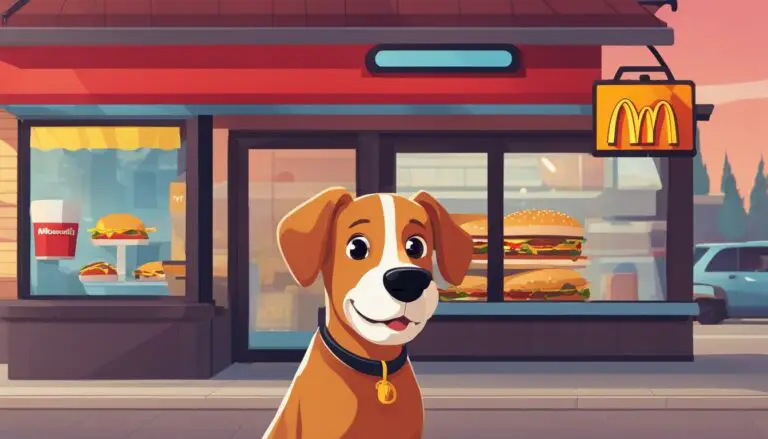Can Dogs Eat Mochi? Professional Insights for Pet Owners
Feeding our furry friends is a responsibility for pet owners, and knowing what foods are safe for them is crucial. One famous Japanese delicacy, mochi, has gained attention as a potential dog treat. But can dogs eat mochi?
This article will provide professional insights and advice on whether mochi is suitable for canine consumption.
Mochi is a traditional Japanese dessert made from rice, sugar, water, and other ingredients. While a small amount may not immediately harm dogs, feeding them, mochi is generally not recommended. The high sugar content in mochi can lead to weight gain and other health problems.
What is Mochi?
Mochi is a traditional Japanese delicacy that has gained popularity worldwide. It is a soft and chewy rice cake made from glutinous rice, also known as sweet rice or sticky rice. The rice is pounded into a smooth and elastic texture, giving mochi its distinctive consistency.
While rice is the main ingredient in mochi, it is usually sweetened with sugar and flavored with various fillings such as red bean paste, fruits, or ice cream. Mochi is often shaped into small round balls or molded into different shapes, making it visually appealing and enjoyable to eat.
Making mochi involves steaming the glutinous rice and then pounding it using a large wooden mallet in a traditional mortar called a “usu” or a modern electric mochi machine. The repetitive pounding creates the unique texture and chewiness that mochi is known for.
The Ingredients in Mochi
| Ingredients | Description |
|---|---|
| Glutinous Rice | The main ingredient that gives mochi its sticky and chewy texture. |
| Sugar | Used to sweeten the mochi and enhance its flavor. |
| Water | Added to the rice to create the desired consistency of the dough. |
| Fillings | Various fillings are used to add flavor and texture to the mochi, such as red bean paste, fruits, or ice cream. |
Can Dogs Have Mochi?
Mochi, a famous Japanese delicacy made with rice, sugar, and other ingredients, may seem enticing, but it is generally not recommended for dogs. The main reason behind this is the high sugar content in mochi, which can adversely affect a dog’s health.
While a small amount of mochi may not cause immediate harm, excessive intake can lead to weight gain, obesity, and other health problems.
Feeding mochi to dogs poses several risks due to its sugar content. Dogs have different dietary needs and sensitivities compared to humans, making them more prone to the adverse effects of sugar.
Routine consumption of sugary treats like mochi can contribute to weight gain and increase the risk of obesity in dogs. Additionally, dogs may experience upset stomach, allergies, and other symptoms from consuming mochi.
It is best to avoid giving mochi to dogs altogether. Instead, opt for healthier treat options that provide essential vitamins and minerals without the harmful effects of excessive sugar.
Carrots, apples, blueberries, and peanut butter are examples of alternative treats that dogs can enjoy in moderation. As always, it is essential to consult with a veterinarian before introducing any new foods into your dog’s diet.
Table: Risks of Giving Mochi to Dogs
| Risk | Explanation |
|---|---|
| Weight Gain and Obesity | Mochi’s high sugar content can contribute to weight gain and increase the risk of obesity in dogs. |
| Upset Stomach | Consuming mochi can cause digestive issues and upset stomach in dogs. |
| Allergic Reactions | Dogs may have allergic reactions to the ingredients found in mochi, leading to symptoms such as itching, irregular bowel movements, and loss of energy. |
What are the Risks of Giving Mochi to Dogs?
Mochi may be a delicious treat for humans, but it can pose several health risks for dogs. One of the main concerns is the high sugar content in mochi. Dogs have different digestive systems than humans, and their bodies are not designed to process large amounts of sugar.
Routine consumption of mochi can lead to weight gain in dogs and increase the risk of obesity and other health issues.
In addition to the high sugar content, mochi can also cause problems for dogs with lactose intolerance. Mochi ice creams, in particular, contain lactose, which is a sugar found in milk products.
Dogs that are lactose intolerant do not have the necessary enzyme to digest lactose, leading to digestive upset, diarrhea, and other gastrointestinal issues.
Furthermore, dogs may also experience allergic reactions to the ingredients found in mochi. Some dogs may be sensitive or allergic to certain grains, such as rice, which is a primary ingredient in mochi.
Allergic reactions can manifest as excessive itching, redness or swelling of the skin, irregular bowel movements, and loss of energy. You must monitor your dog for any signs of allergies or adverse reactions if they have consumed mochi.
| Risks of Giving Mochi to Dogs | Potential Health Issues |
|---|---|
| High sugar content | Weight gain, obesity |
| Lactose intolerance | Upset stomach, diarrhea |
| Allergic reactions | Itching, redness, irregular bowel movements, loss of energy |
Alternatives to Mochi for Dogs
These alternatives provide dogs with the nutrition they need without the harmful effects of sugar and lactose. Here are some options to consider:
- Carrots: Not only are carrots low in calories, but they also provide a crunchy texture that dogs love. They are a great source of vitamins and minerals, including beta-carotene, essential for your dog’s eye health.
- Apples: Apples are an excellent choice for a healthy and refreshing treat. They are packed with fiber and antioxidants; the crunchiness can help keep your dog’s teeth clean.
- Blueberries: These tiny fruits are a superfood for both humans and dogs. Blueberries are rich in antioxidants and vitamins, making them a great addition to your dog’s diet.
- Peanut Butter: Dogs love peanut butter, which can be a great way to add flavor to their treats. Just make sure to choose a peanut butter that does not contain xylitol, as it is toxic to dogs.
Conclusion – Can Dogs Eat Mochi?
In conclusion, it is not recommended to feed mochi to dogs. While a small amount may not immediately harm them, several risks are associated with giving mochi to dogs. The high sugar content in mochi can lead to weight gain, obesity, and other health problems in dogs.
Additionally, dogs may have allergic reactions to the ingredients found in mochi, causing discomfort and other symptoms.
Dogs have different dietary needs and sensitivities compared to humans, and it is essential to provide them with food options that are safe and nutritious.
It is always best to consult a veterinarian before introducing new foods into a dog’s diet. They can guide the best diet for your dog and recommend healthier treat alternatives specifically designed for dogs.
FAQ
Can dogs eat mochi?
While a small amount of mochi may not harm dogs, it is generally not recommended. Mochi contains a significant amount of sugar, which is not good for dogs.
It can also cause weight gain and lead to other health problems. It is best to keep dogs away from mochi and provide them with safe and nutritious food options.
What is mochi?
Mochi is a Japanese delicacy made with rice, sugar, water, and other ingredients. It has a soft texture and is often colored to make it more visually appealing. Mochi ice cream, where mochi is infused with different ice cream flavors, is also famous.
Can dogs have mochi?
It is generally not recommended to give mochi to dogs. While a small amount may not cause immediate harm, mochi contains a significant amount of sugar, which is not good for dogs.
Excessive intake of sugar can lead to weight gain, obesity, and other health problems. It is better to avoid giving mochi to dogs and opt for healthier treat options.
What are the risks of giving mochi to dogs?
Routine consumption of mochi can lead to weight gain in dogs and increase the risk of obesity and other health issues. Mochi contains sugar, which can cause upset stomach, allergies, and other symptoms in dogs.
Mochi ice creams, in particular, can be harmful for dogs with lactose intolerance due to the presence of lactose. Dogs may also experience allergic reactions to the contents found in mochi, such as excessive itching, irregular bowel movements, and loss of energy.
What are alternatives to mochi for dogs?
Instead of giving mochi to dogs, there are plenty of safe and healthy alternatives. Dogs can enjoy a variety of nutritious treats such as carrots, apples, blueberries, and peanut butter in moderation.
These alternatives provide dogs with essential vitamins and minerals without the harmful effects of sugar and lactose. It is essential to consult with a veterinarian before introducing new foods into a dog’s diet.
Can dogs eat mochi?
It is best to avoid giving mochi to dogs. While a small amount may not cause immediate harm, the high sugar content and potential for allergic reactions make it a risky choice.
Consult with a veterinarian for guidance on the best diet for your dog, and opt for healthier treats specifically designed for dogs.






